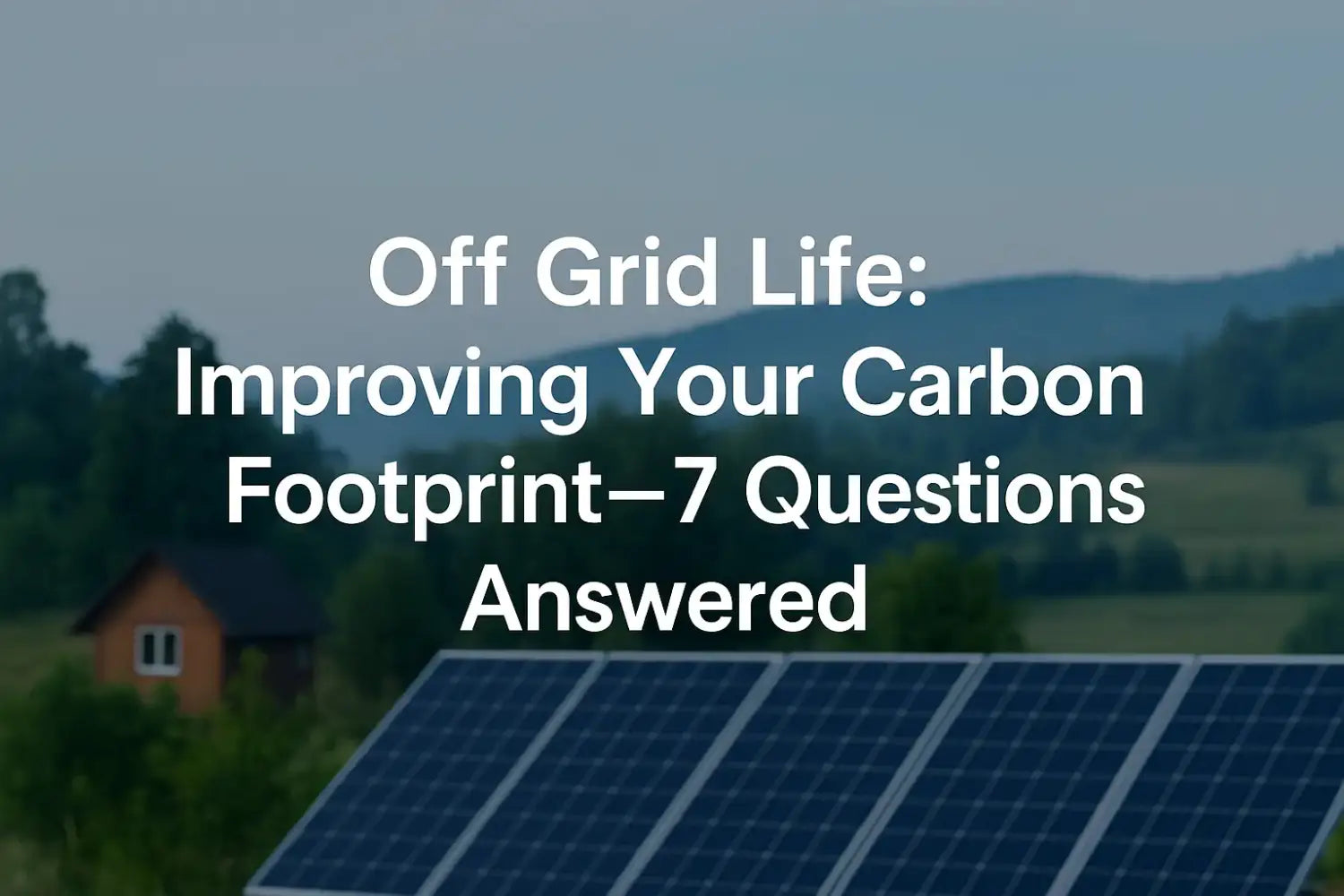
Off Grid Life Improving Your Carbon Footprint—7 Questions Answered
Living off the grid is becoming more popular every year. Many people want to reduce their environmental impact. This lifestyle offers freedom and sustainability. In this blog, we’ll answer seven key questions about Off Grid Life Improving Your Carbon Footprint.
What Does Off Grid Life Mean?
Off grid life means living without relying on public utilities like electricity and water. People use solar panels, wind turbines, and rainwater systems. This lifestyle helps reduce dependence on fossil fuels and large infrastructures. It promotes self-sufficiency and environmental consciousness.
Learn more about reliable off-grid technology solutions at Akiva Tech
How Does Off Grid Life Improve Your Carbon Footprint?
Living off grid reduces the carbon emissions from daily activities. Using renewable energy sources cuts down greenhouse gases. Recycling water and growing your food lowers transportation emissions. The result is a smaller overall carbon footprint on the planet.

What Are Common Renewable Energy Options for Off Grid Life?
Solar panels are the most popular renewable energy choice. Wind turbines can provide power in windy areas. Micro-hydro systems work if you have flowing water nearby. Many off grid homes combine multiple renewable sources to stay powered.
For top-quality solar and energy systems, check out Victron Energy and Fronius.
How Can You Manage Water Usage Off Grid?
Collecting rainwater is common in off grid setups. Water conservation techniques include low-flow faucets and composting toilets. Greywater recycling can irrigate gardens. Managing water wisely prevents waste and protects local water sources.
What Are the Challenges of Off Grid Life?
Living off the grid requires planning and effort. Initial setup costs can be high for equipment and installation. Maintenance and troubleshooting are often your responsibility. Off grid living can also mean less convenience and limited access to some services.
Explore portable power solutions from EcoFlow to help manage energy needs on the go.
How Do You Grow Food While Living Off Grid?
Gardening is key for food self-sufficiency off the grid. Many people use permaculture or organic gardening techniques. Greenhouses extend growing seasons in colder climates. Raising chickens or small livestock provides protein sources as well.
Is Off Grid Life Suitable for Everyone?
Off grid life is not for everyone but can suit many people. It demands lifestyle changes and a willingness to learn new skills. Some thrive on independence, while others prefer urban convenience. It’s important to consider your needs and goals before deciding.
What Are the Environmental Benefits of Off Grid Life?
By using renewable energy, off grid homes reduce fossil fuel use. They lower greenhouse gas emissions significantly. Water conservation methods protect ecosystems and preserve resources. Growing your own food cuts down on transportation pollution. Overall, off grid life supports a healthier planet.
How Can You Start Living Off Grid?
Start by assessing your energy and water needs. Research renewable energy systems that fit your location and budget. Begin conserving water and reducing waste immediately. Learning gardening and food preservation skills helps build resilience. Small changes lead to big improvements over time.
For expert generators and power solutions, see Himoinsa.
Can Off Grid Life Save You Money?
Though initial costs are high, off grid life reduces monthly bills. You save on electricity, water, and sometimes food costs. Over time, the investment pays off with lower utility expenses. Financial savings depend on your location and lifestyle choices.
How Does Off Grid Life Improve Your Carbon Footprint?
By reducing energy consumption and using renewables, off grid life lowers carbon emissions. You rely less on fossil fuels, decreasing your contribution to climate change. Growing food locally cuts transport emissions further. Water conservation also reduces environmental impact. These factors together make a big difference.
What Tools Help Off Grid Life Success?
Energy-efficient appliances reduce power needs. Battery storage systems store energy for cloudy days. Smart monitoring helps track energy and water usage. Composting systems turn waste into valuable soil for gardening. Using the right tools makes off grid living smoother and more sustainable.
Can You Combine Off Grid Life with Modern Technology?
Yes, many off grid homes use modern tech to improve comfort. Solar battery storage, energy-efficient lighting, and water filtration systems are common. Internet access can be maintained with satellite or cellular connections. Technology makes off grid life more convenient and accessible.
Final Thoughts on Off Grid Life Improving Your Carbon Footprint
Living off the grid offers a meaningful way to reduce environmental harm. It encourages renewable energy use, water conservation, and local food production. This lifestyle supports self-sufficiency and resilience. While it has challenges, many find it rewarding and impactful. Consider if off grid life fits your goals to improve your carbon footprint.
For more on sustainable off-grid solutions, visit Akiva Tech.
